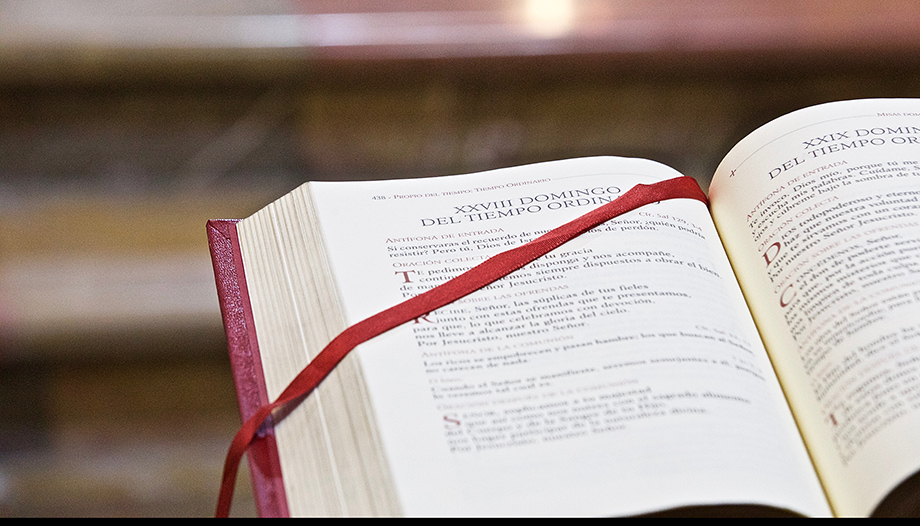Today is Divine Mercy Sunday, a universal feast inaugurated by Pope St John Paul II following the revelations received in the 1930s by Saint Maria Faustina Kowalska, the great apostle of divine mercy.
Through these revelations, Jesus told her: “I am sending you with my mercy to the people of the whole world. I do not want to punish aching mankind, but I desire to heal it, pressing it to my merciful heart.”
It is a day to reflect more on the mystery of God’s mercy, and also the grace and forgiveness God offers us through this mercy. It is very suitable that we celebrate this feast just after Easter: the Passion, Death and Resurrection of Our Lord give us the ultimate proof of God’s mercy. We could say, using an idea of Pope Benedict, that in the suffering and Cross of Jesus, God’s mercy turns against his justice. God is the one offended, we deserve punishment, yet he takes on himself the penalty we should have received. In the Resurrection we see the depths of God’s love for us: a love which rises above, is stronger than, our evil, a love stronger than death.
Today's Gospel helps us to meditate on God's mercy. "“In the evening of that same day, the first day of the week, the doors were closed in the room where the disciples were for fear of the Jews. Jesus came and stood among them.”Our fear closes us in, but nothing can stand in the way of divine mercy. In spite of the apostles' fear, in spite of the closed door, Jesus comes and stands in their midst... and ours. God's mercy overcomes all external obstacles and even the internal fear that we ourselves create. Christ comes with his peace: the gift of peace is always part of his mercy.
He breathes on the apostles – a clear gesture to accompany his gift of the Holy Spirit:Receive the Holy Spirit. Remember that in Hebrew, the same word, ruahis used for both ‘breath’ and ‘spirit’. Jesus is giving the apostles a share in his own life, in his own Spirit. But immediately he adds: : “For those who sins you forgive they are forgiven; those whose sins you retain, they are retained.” .” Christ’s gift of his peace and his Spirit to the apostles is accompanied by the power to forgive, to release, sins, which are the principal obstacle to peace, and he ‘sends’ them out to do just this. This mercy reaches us principally today through the sacrament of Confession: to forgive our sins, the Church must hear them, and this sacrament is the most practical and effective way to do so, offering penitents also the peace which comes from offloading their sinful burden. Christ breathes on us too, sending us out to be instruments of his peace, which certainly includes bringing others to benefit from this extraordinary sacrament of divine mercy.
Homily on the readings of the Second Sunday of Easter (A)
The priest Luis Herrera Campo offers its nanomiliaA short one-minute reflection for these Sunday readings.












